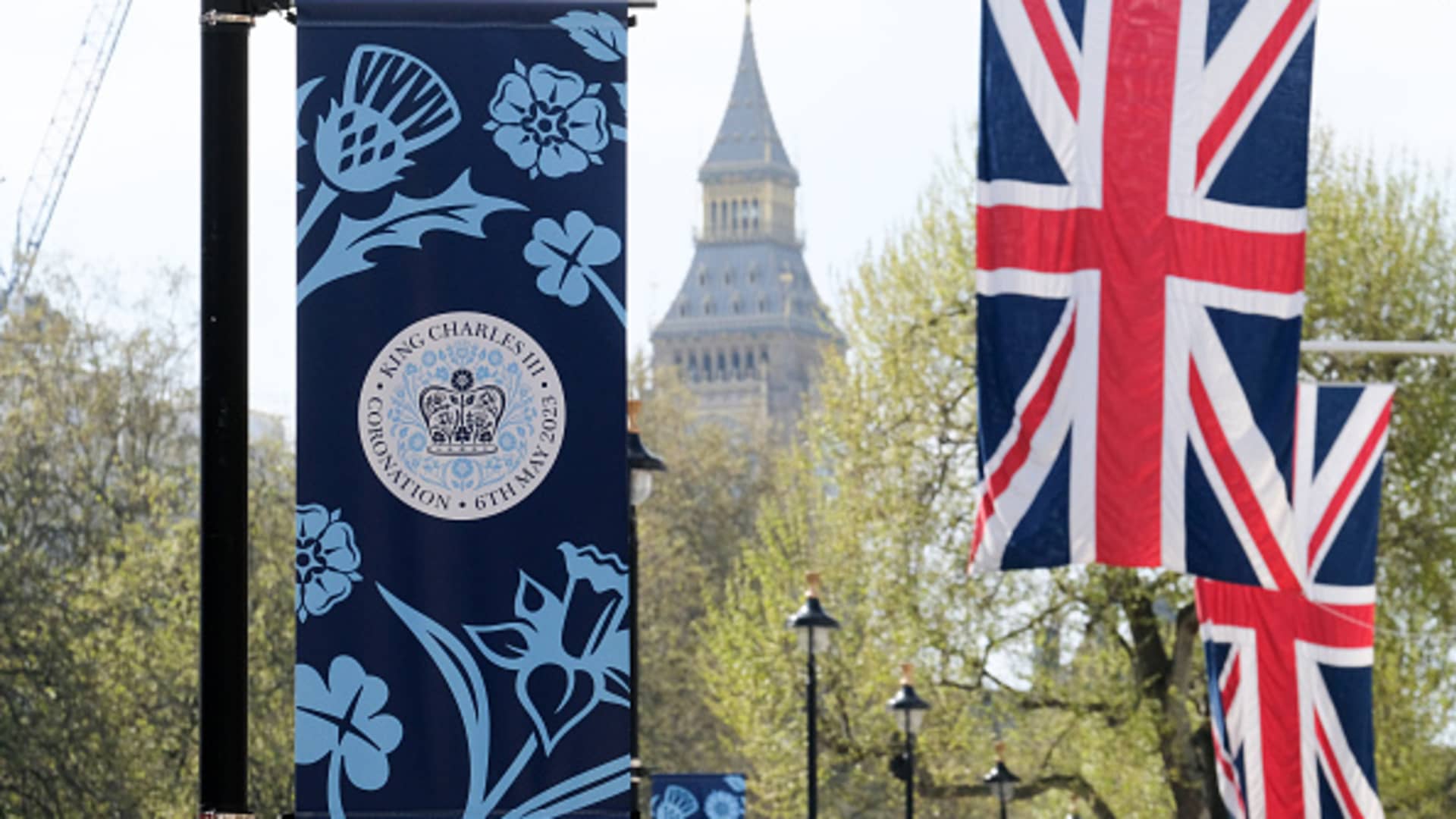Products You May Like
LONDON — The eyes of the world will be on the U.K. this weekend as King Charles III is crowned at Westminster Abbey in a quintessentially British display of pomp and pageantry.
The coronation, which will be conducted by the Archbishop of Canterbury on Saturday May 6, will kickstart three days of celebrations across London and the wider U.K., culminating in a public holiday on May 8.
The service — the first of its kind in 70 years — is largely ceremonial, following the 74-year-old king’s official accession to the thrown on September 8, 2022, the day of Queen Elizabeth II’s death.
But while millions are expected to observe the historic occasion, it falls against a challenging economic backdrop for the U.K, with many questioning the validity of the event as the country faces its worst cost-of-living crisis in a generation.
How much will the coronation cost?
Buckingham Palace does not provide an exact figure for the cost of the coronation, nor did it respond to CNBC’s request for comment.
However, King Charles himself is said to have sought a more scaled-back celebration, with a “shorter,” “smaller, less expensive and more representative” ceremony — part of his wider plans for a slimmed down monarchy.
The Westminster Abbey ceremony, for instance, will be attended by some 2,000 VIP guests — around a quarter of the number present at the late queen’s coronation — and the process will last around one hour, rather than several.
Still, the expense of the weekend’s proceedings — which include a “King’s procession” and a star-studded concert in Windsor Gardens — are expected to run to between £50 million and £100 million ($63-125 million), according to estimates cited by the BBC which it said was not from an official source.
That’s potentially more than the approximately £50 million in today’s money — then £1.5 million — spent when the queen took the throne in 1953.
It’s also well above the equivalent £24.8 million — then £450,000 — spent on George VI’s coronation in 1937.
Who pays for the event?
The occasion, like most public events, is funded by the U.K. government and, ultimately, the British taxpayer, with Buckingham Palace also contributing an undisclosed share.
That has disgruntled some Brits, with 51% saying the coronation should not be funded by the government, according to a recent YouGov poll, while 18% were undecided.
Meantime, the public holiday called to mark the event on May 8 is estimated the cost the U.K. economy a further £1.36 billion in lost productivity.
Currently, U.K. gross domestic product (GDP) stands around 0.6% below its level of late-2019, and it is the only G-7 economy not to have recovered from the Covid-induced slump. Inflation, meanwhile, remains stubbornly high, with the headline rate rising 10.1% annually in March, and food and beverage costs rising at the sharpest clip in 45 years.
The government, for its part, however, insists that the occasion will bring in millions for businesses, particularly the hard-hit retail, tourism and hospitality sectors. According to some estimates, retail sales are typically boosted by around 15% per day on public holidays.
UK Hospitality, a trade association for the hospitality industry, said that the king’s coronation could bring a £350 million boost to the sector. That, combined with Britain’s two further May bank holidays, as well as the Eurovision Song Contest in Liverpool on May 13, could generate a total boost of £1 billion, it added.
— CNBC’s Gaelle Legrand contributed to this report.
